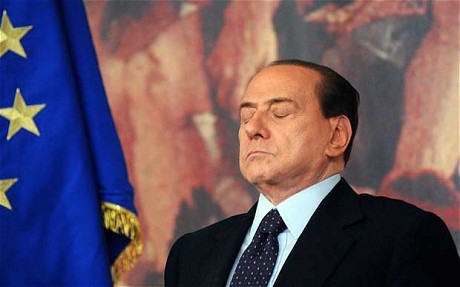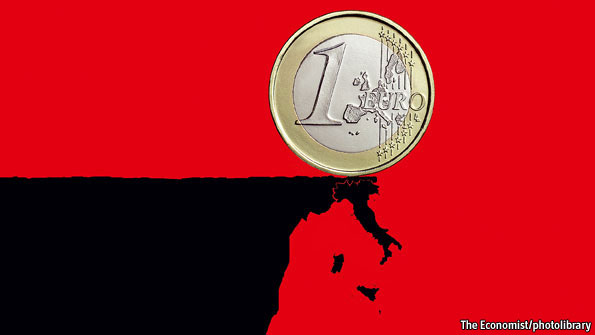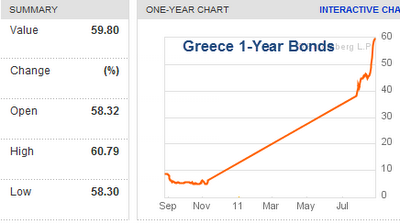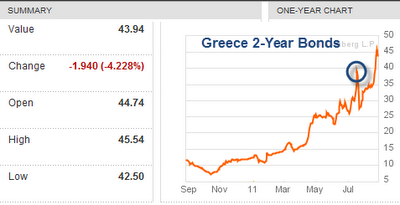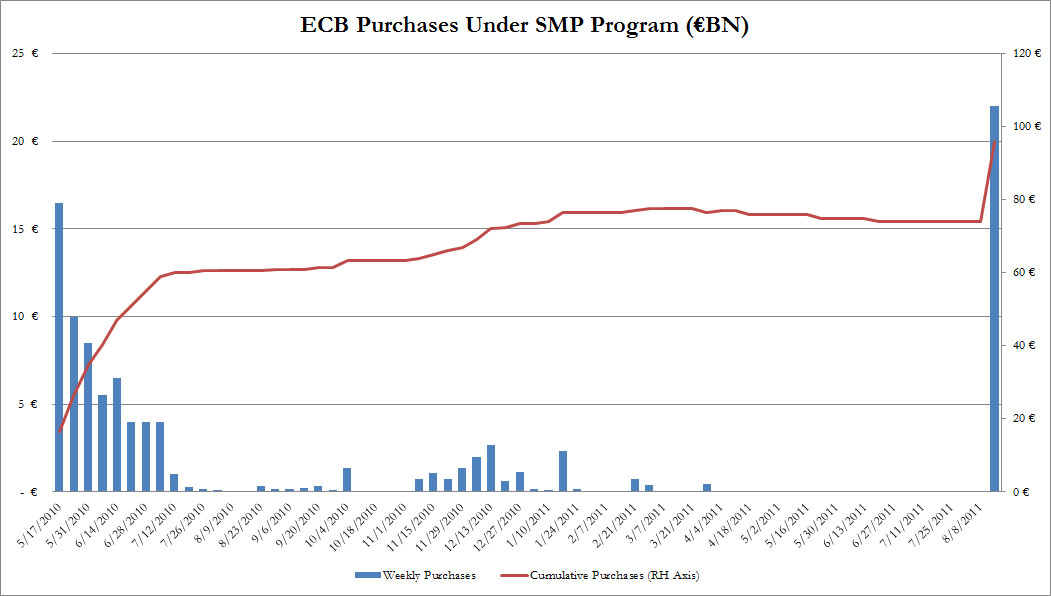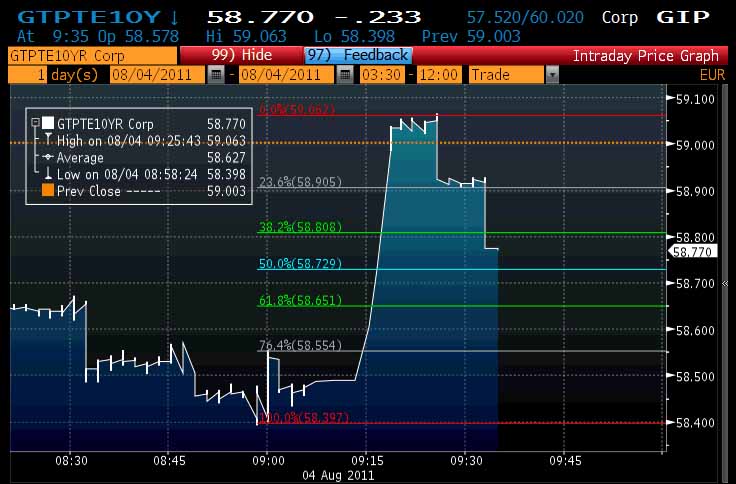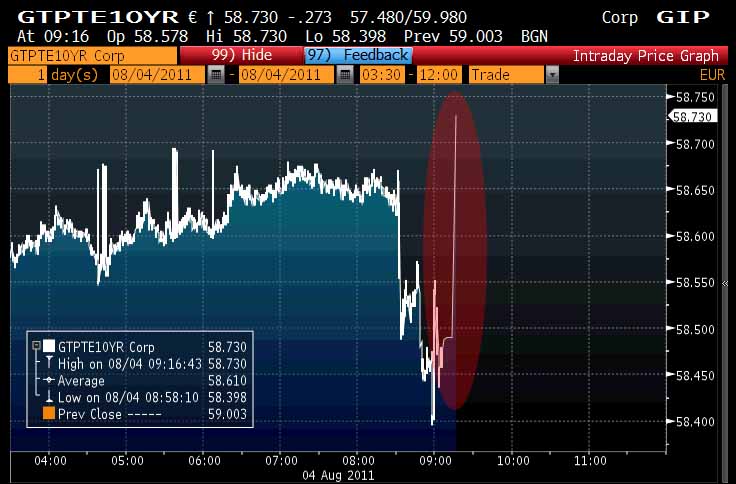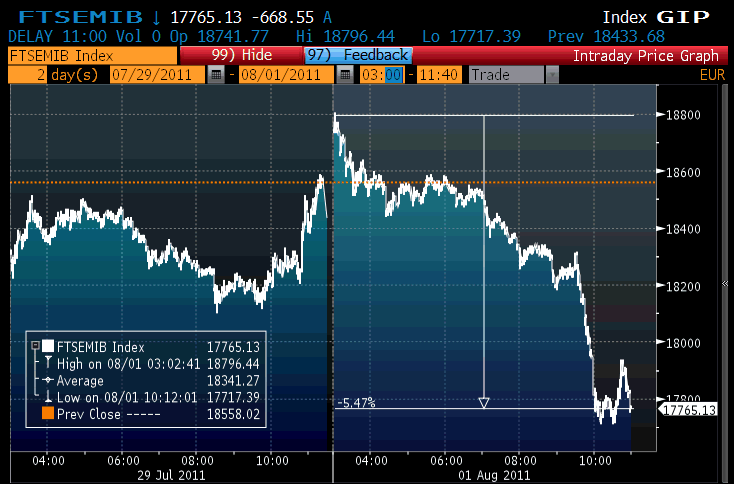A European market regulator announced on Thursday night that short-selling of financial stocks in several countries would be temporarily banned in an effort to stop the tailspin in the markets.
The European Securities and Markets Authority, a body that coordinates the European Union’s market policies, said in a statement that these negative bets on stocks would be curtailed effective on Friday in France, Belgium, Italy and Spain. They are already banned in Greece and Turkey.
“Today some authorities have decided to impose or extend existing short-selling bans in their respective countries,” the authority said. “They have done so either to restrict the benefits that can be achieved from spreading false rumours or to achieve a regulatory level playing field, given the close inter-linkage between some E.U. markets.”
The statement said details for each country would be posted on their individual financial regulators’ Web sites.
European financial regulators have been discussing a continentwide a ban over the last few days amid fears from governments in places like France that these negative bets on stocks were driving a panic. In short-sales, a trader sells borrowed shares in hopes that they will decline in value before he has to buy them back to close out his loan. The difference in price is his profit, or loss.
But some countries, like Britain, came out publicly against a short-sale ban.
Critics say short-selling encourages speculation and pushes stock prices down, sometimes feeding on itself in a panicked market, while advocates say it keeps the market honest and maintains liquidity.
The increasing number of European governments banning short-selling puts United States regulators in a tricky position. Investors with negative views on bank stocks who are forced to close their negative bets in Europe might shift them to American banks. On Thursday, stocks in the United States continued their see-saw ride, surging 4 percent, buoyed by hopeful data on initial jobless claims.
The short-selling announcement in Europe stirred some immediate criticism. “It is a crisis of confidence, and when you do something like this, it shows a lack of confidence, which is exactly the opposite of what you want to say to the markets,” said Robert Sloan, managing partner of S3 Partners, a firm that helps hedge funds manage their relationships with their brokers.
Back in 2008, European and United States officials coordinated temporary bans on shorting financial stocks.
The bans in Europe are drawing to the list of comparisons that commentators are making between the current market unrest and the financial crisis of 2008.
Back then, governments around the world, including Britain and the United States, banned short-selling on financial stocks temporarily. The ban was meant to prevent bank stocks from falling further, but in time, stocks fell anyway.
Hedge funds, in particular, were hurt by the ban because it interfered with trading strategies that pair negative bets with positive ones.
The ban on short-selling in 2008 has been widely criticized and blamed for driving investors out of the market altogether, further hurting stock prices.
It is impossible to know whether the panic would have been worse without the ban, which protected companies like Goldman Sachs and Morgan Stanley, but general studies of short-selling have found that bans on that activity can lead to more volatility in the market and lower trading volume, according to Andrew W. Lo, a professor at the Massachusetts Institute of Technology.
Mr. Lo said banning short-selling also removed important information about what investors think about the financial health of companies, and suggested that the bans served mainly political purposes.
“It’s a bit like suggesting we take heart patients in the emergency room off of the heart monitor because you don’t want to make doctors and nurses anxious about the patient,” he said.
Details were still emerging about each country’s policy. In France, the market watchdog banned short-selling or increasing short-selling positions, effective immediately, for 15 days on 11 financial institutions. They are: April Group, Axa, BNP Paribas, CIC, CNP Assurances, Crédit Agricole, Euler Hermès, Natixis, Paris Ré, Scor, and Société Générale.
Shares in the banks have slumped sharply, sometimes on market rumors. Société Générale’s shares plunged as much as 23 percent Wednesday before closing down 14 percent, on what the chief executive, Patrick Oudea, called “fantasy rumors.” Its shares recovered slightly on Thursday, gaining 3.7 percent.
The European authority does not have the authority to impose a policy on short-selling but it can make recommendations and coordinate cooperation among the European Union’s 27 governments. The European Parliament is considering legislation to give the authority additional powers.
Some investors are already anticipating that such a ban may occur, Mr. Sloan of S3 Partners said. He said that for the past two months many investors had been getting out of their short positions, in part out of fear that such a ban might be introduced. He also said if there were more short-sellers in the market now, the markets might be falling less than they are. That is because as markets fall, short-sellers often close their positions to cash in profits and in doing so, they have to purchase shares to cash out.
The markets could use these sorts of buyers now, said Mr. Sloan, who wrote a book after the 2008 crisis called “Don’t Blame the Shorts: Why Short Sellers Are Always Blamed for Market Crashes and How History Is Repeating Itself.”
Arturo Bris, a professor of finance at the IMD business school in Lausanne, Switzerland, studied financial stock prices in 2008 before and after a short-selling policy was put in place. On Wednesday, Mr. Bris said that he did not think such a ban in Europe would help in the long run. “If there is a ban in the European markets in the next couple weeks it would stop the blood, but it’s not going to solve the problem,” Mr. Bris said. “It would just delay the problem.”
Even with the European countries’ bans on short-sales of some stocks, investors who have negative opinions on companies may still find ways to bet against them in the derivatives market, if those sorts of trades remain allowed.


